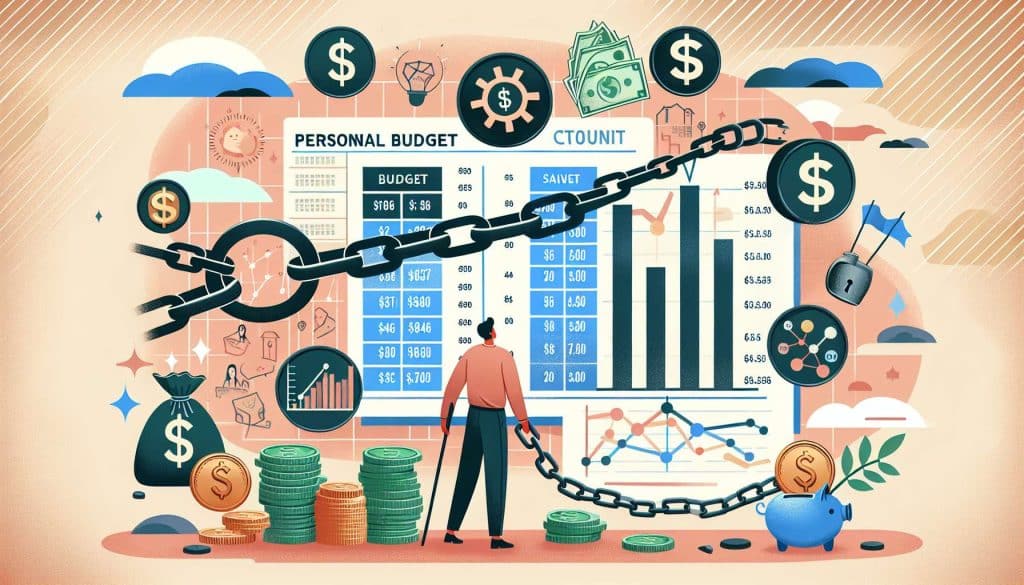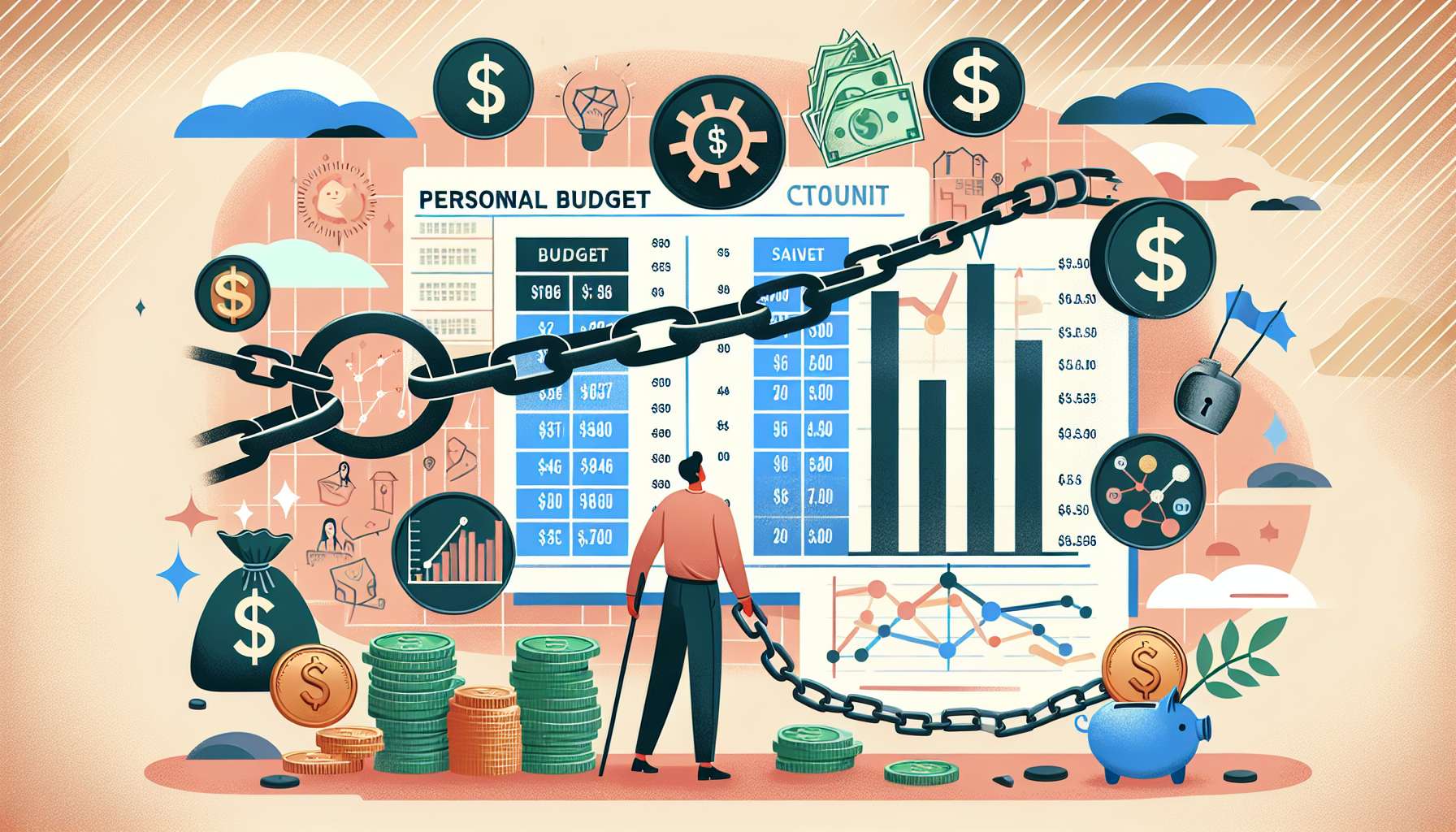Master Your Personal Budget: Achieve Financial Freedom

Anúncios

Exploring Personal Budgeting for Financial Success
In a world where financial uncertainties are becoming the norm, effective money management has never been more crucial. Many individuals feel overwhelmed as they attempt to juggle increasing living costs, unexpected expenses, and economic instability. Yet, navigating these challenges is possible through mastering personal budgeting. By understanding and implementing sound budgeting strategies, individuals can regain control, reduce stress, and lay a path towards financial freedom.
The ability to budget effectively can transform one’s financial landscape. It’s not just about limiting spending but establishing a financial plan that aligns with personal goals. Personal budgeting acts as a blueprint to manage income and expenses, prioritize savings, and avoid incurring unnecessary debt. With a clear understanding of one’s financial situation, making informed decisions and planning for the future becomes feasible. This ticks off the first step towards financial stability.
Achieving financial security through budgeting requires dedication and a commitment to lifelong learning. While initial setup might seem daunting, the long-term benefits outweigh the temporary effort. Carefully constructed budgets not only bear financial fruits but also foster habits that lead to fiscal responsibility. As each budgeting goal is met, confidence grows, steering individuals towards their ultimate objective—financial independence. Let’s delve deeper into understanding and creating effective personal budgets.
Anúncios
Building a Personal Budget Plan: A Guide
Building a personal budget entails several structured steps designed to offer clarity and control over finances. The first crucial step is assessing one’s income. This encompasses all earnings, including full-time salaries, side ventures, and passive income like rental earnings. Knowing the exact net income amount after taxes sets a realistic foundation for budgeting. Those with fluctuating incomes must factor this element into their financial planning for a more accurate budget.
After determining income, the next step is diligently tracking expenses. This action requires documenting daily expenses over a month to uncover spending habits. Expenses should be divided into ‘essential,’ such as rent and groceries, and ‘non-essential,’ like dining out. Various budgeting apps can simplify this process, offering tools to categorize and monitor expenditures effortlessly, making it easy to identify areas for potential savings.
A pivotal aspect of budgeting is setting financial goals. Your budget should reflect the objectives you aim to achieve, be it saving for a new home, planning a future vacation, or building an emergency fund. Setting priorities among goals, based on urgency and importance, facilitates motivation and adherence to the budget. Assign realistic timelines to these goals to create a defined and manageable path to success.
Anúncios
Maintaining adherence to the budget is crucial, requiring the creation of a budget plan. Allocate your income across different categories, aiming to save at least 20% divided among immediate needs, medium-term necessities, and long-range objectives. Your budget should remain flexible to accommodate changing circumstances, ensuring a continuously balanced financial outlook.
The 50/30/20 rule is a simplified budgeting technique recommended for maintaining fiscal health. It involves allocating 50% of income to necessities, 30% to desires, and 20% to savings and reducing debt. This balanced approach promotes healthy spending habits while ensuring substantial savings. Adjustments can be made depending on personal circumstances, but the essence remains a guided path to financial stability.
Features of Personal Budgeting
- Income and Expense Assessment
- Goal-oriented Financial Planning
- Flexible Budget Categories
- Utilization of Budgeting Apps
Advantages of Personal Budgeting
Taking control of finances through budgeting offers numerous advantages beyond mere monetary gains. Primarily, it reduces the stress associated with financial instability. By understanding income and containing expenses, individuals cultivate peace of mind and confidence in money management. Furthermore, budgeting instills discipline, a critical component for long-term financial success.
Effective budgeting also empowers individuals by granting clear insights into spending behaviors. This transparency fosters conscious financial decisions, thereby promoting savings and curtailing wasteful expenditures. With discipline ingrained through consistent budgeting practice, people find themselves capable of tackling debts more efficiently, redirecting funds towards higher priorities.
Another significant benefit of diligent budgeting is the ability to plan for the future. Whether the goal is short-term, like purchasing a car, or long-term, such as retirement planning, budgeting provides a structured framework for achieving these aspirations. Setting and meeting milestones within a budget encourages continuous progress and amplifies financial literacy.
One of the often understated yet profound impacts of budgeting is the sense of empowerment it provides. As financial literacy and discipline grow, the dependency on credit diminishes, fostering a cycle of positive financial habits. Such empowerment is fundamental to achieving autonomy over one’s finances and ultimately, financial freedom.
In addition to psychological advantages, practical benefits are apparent. Planning for emergency funds, for example, ensures financial readiness for unforeseen events. By reserving three to six months’ worth of living expenses, the budget acts as a financial buffer, maintaining stability during uncertain times and safeguarding against debt accumulation.
Lastly, the overarching benefit of personal budgeting is the opportunity it offers for lifestyle enhancement. With financial goals in sight and budgeting strategies in place, individuals have more freedom to enjoy various life experiences without the looming threat of financial strain. By prioritizing effectively, individuals not only achieve financial goals but also enrich their personal lives.
- Reduction in Financial Stress
- Empowerment through Financial Planning
- Capacity to Handle Emergencies
- Promotion of Financial Discipline





